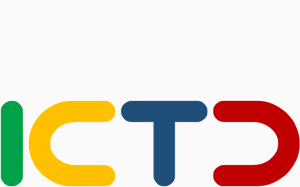The 13th International Conference on Information & Communication Technologies and Development (ICTD 2024), will be hosted in Nairobi, Kenya from December 9-11, 2024.
ICTD 2024 provides an international forum for scholarly researchers to explore the role of information and communication technologies (ICTs) in social, political, and economic development. The ICTD conferences have been taking place approximately every 18 months since 2006. Recent proceedings have been published in the ACM Digital Library.
Important Dates
- 15 July 2024: Deadline for submission of Full Papers
- 15 August 2024: Notification of acceptance for Full Papers
- 15 September 2024: Camera-ready deadline for Full Papers
All submissions are due 11:59 pm AoE (Anywhere on Earth).
Submission details are below. If you have any questions, please contact the Program Committee at ictdpc2024@gmail.com
Background
“ICTs” or “Information & Communication Technologies” comprise electronic technologies for information processing and communication, as well as systems, interventions, and platforms built on such technologies and the data generated by them. “Development” refers to a range of activities aimed at improving the lives of people, and includes, but is not restricted to poverty alleviation, education, healthcare, communication, gender equality, better governance, improved infrastructure, improved agricultural practices, environmental conservation, and sustainability. The conference program will reflect the multidisciplinary nature of ICTD research and diverse publishing traditions within this field, with anticipated contributions from disciplines including (but not limited to) anthropology, communication, computer science, economics, electrical engineering, data science, design, geography, human-computer interaction, information systems, political science, public health, sociology, and various methodological approaches. Given the character of the conference, papers must address and appeal to a broad multidisciplinary audience.
Call for Full Papers
- To be considered Full Papers, contributions should be more than six pages long (single column ACM template, as specified in the “Submission Instructions” section below). There is no hard page limit, but papers with length incommensurate to contributions will be rejected. Previous papers (if converted to the ACM single-column format) would have run 14-18 pages in length.
- Accepted papers typically represent a major advance for the field of ICTD and will be presented as oral presentations.
- Full Papers will be evaluated via double-blind peer review by a multidisciplinary panel of at least three readers, one of whom will come from outside the paper’s disciplinary domain in order to ensure broad readability. Reviewers will have 4 weeks to complete their reviews.
- Full Papers will be evaluated according to their novel research contribution, methodological soundness, theoretical framing and reference to related work, quality of analysis, quality of writing and presentation, and relevance to a broad audience of researchers. Manuscripts considering novel designs, new technologies, project assessments, policy analyses, impact studies, theoretical contributions, social issues around ICT and development, and so forth will be considered. Well-analysed negative results from which generalizable conclusions can be drawn are also sought. Authors are encouraged to address the diversity of approaches in ICTD research by providing context, implications, and actionable guidance to researchers and practitioners beyond the authors’ primary domains. Full Papers typically present mature work whereas Notes (TBA) are used for presenting preliminary research that is still work-in-progress.
- All acceptance will be conditional , the final version of the paper will be checked by reviewers before final acceptance.
- All accepted Full Papers will be archived in the ACM Digital Library. A subset of the Full Papers will also appear in a special issue of the Information Technologies & International Development journal.
Submission Instructions
- Portal link will be opened soon
- Only original, unpublished, research papers in English will be considered.
- Full Papers and Notes must use the ACM templates and reference formatting (LaTex and Word available). Please, note: As described in the page linked above, manuscripts for review should be submitted in a single column format. Manuscripts submitted for review should use the “Submission Template” (Microsoft Word) or “Primary Article Template” (Latex -\documentclass[manuscript,review,anonymous]{acmart} ) as described at the link.
- Papers must be submitted in a form suitable for anonymous review. No author names or affiliations may appear on the title page, and papers should avoid revealing their identity in the text. When referring to your previous work, do so in the third person, as though it were written by someone else. Only blind the reference itself in the (unusual) case that a third-person reference is infeasible. Publication as a technical report or in an online repository does not constitute a violation of this policy.
- Submissions not in the template format, not related to the conference themes, not anonymized, and/or not meeting a minimum bar of academic research writing will be rejected without full review.
- Upon acceptance, you will receive instructions on how to prepare your paper for publication.
- For each accepted submission, at least one of the authors will be required to register and present it at ICTD2024. Else, the submission will not be published in the final proceedings.
- For Full Papers, see the ACM’s copyright policies and options.
Human Subjects and Ethical Considerations
Authors are strongly encouraged to read and follow the community-defined minimum ethical standards for ICTD research. These standards are the result of a three-year participatory process to co-define ethical standards in ICTD, and were voted on and adopted at the ICTD conference in Ahmedabad in January 2019. You can also read more about how these standards were created.
In addition, submissions that describe experiments with human subjects, that analyze data derived from human subjects, or that otherwise may put humans at risk should:
- Disclose whether the research received an approval or waiver from each of the authors’ institutional ethics review boards (IRB) if applicable.
- Discuss steps taken to ensure that participants and others who might have been affected by an experiment were treated ethically and with respect.
If a paper raises significant ethical concerns, it might be rejected based on these concerns.
Program Committee
Program Committee Chairs:
- Muthoni Masinde (Central University of Technology, Free State, South Africa)
- Priyank Chandra (University of Toronto)

